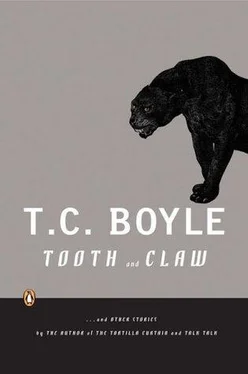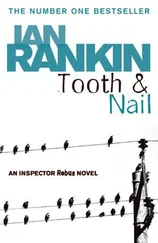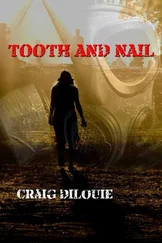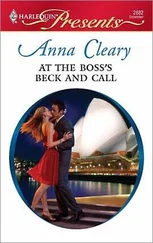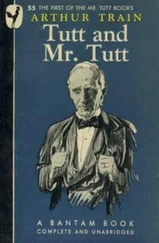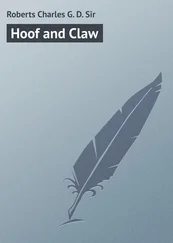Sarah began to gather herself up, thanking them for their hospitality, such as it was, but then wondered aloud who was to escort her across the river? And beyond, on the road to Stoningtown?
The old man gestured toward his son-in-law, who looked up at her now from out of the depths of his own cold blue eyes. “If you’d give him something, Missus, I’m sure George here could be persuaded.”
STONINGTOWN TO NEW LONDON FERRY
IT WAS PAST DARK when they limped into Stoningtown and her guide (no, he hadn’t murdered her along the road or robbed her or even offered up an uncivil remark, and she reminded herself the whole way not to judge people by their appearances, though she could hardly help herself) showed her to the Saxtons’, where she was to spend the night in the cleanest and most orderly house she’d yet seen since leaving Boston. Will Saxton was a kinsman on her mother’s side and he and his wife had been expecting her, and they sat her before the fire and fed her till she could eat no more. Oysters, that was what she was to remember of Stoningtown, dripping from the sea and roasted over the coals till the shells popped open, and a lobster fish as long as her arm. And a featherbed she could sink into as if it were a snowdrift, if only the snow were a warm and comforting thing and not the particles of ice flung down out of the sky by a wrathful God.
She left at three the following afternoon — Thursday, her fourth day on the road — in the company of the Saxtons’ neighbor, Mr. Polly, and his daughter, Jemima, who looked to be fourteen or so. The road here was clear and dry but for the dull brown puddles that spotted the surface like a geographical pox, but they were easy enough to avoid and the weather was cool and fair with scarcely the breath of a breeze. They looked out to the sea and moved along at a reasonable rate — Mr. Polly, a man her own age and cultivated, a farmer and schoolmaster, setting a pace to accommodate his daughter. All went well for the first hour or so, and then the daughter — Jemima — began to complain.
The saddle was too hard for her. The horse was lame and couldn’t keep to a regular gait. She was bored. The countryside was ill-favored — or no, it wasn’t just ill-favored but what you’d expect to see on the outskirts of hell. Could she get down and walk now? For just a hundred yards? Her backside was broken. Couldn’t they stop? Couldn’t they buy that man’s farm over there and live in it for the rest of their lives?
Finally — and this when they were in sight of New London and the ferry itself — she got down from the horse in the middle of the road and refused to go a step farther.
Sarah was herself in a savage mood, wishing for the hundredth time that she’d stayed home in her parlor and let Mrs. Trowbridge worry over her own affairs, and each second she had to sit on that horse without moving forward was a goad to her temper. Mr. Polly gave her a look as if to say What am I to do? and before she could think she said that if it was her daughter she’d give her a whipping she’d never forget.
Jemima, big in the shoulder, with a broad red face beneath her bonnet, informed her that she wasn’t her daughter and glad of it too. “You’re an old hag from hell,” she spat, her face twisted in a knot, “and I wouldn’t live with you — or listen to you either — if I was an orphan and starving.”
The trees stood still. In the near distance there was a farm and a pen and a smell of cattle. Then the father dismounted, took the daughter by the arm and marched into a thicket of the woods, where both their voices were raised in anger until the first blow descended. And then there were screams, raw, outraged, crescendoing, until you would have thought the savages had got hold of her to strip the skin from her limbs with their bloody knives. The blows stopped. Silence reigned. And Jemima, looking sullen and even redder in the face and probably elsewhere too, followed her father out of the thicket and climbed wearily back into the saddle. She didn’t speak another word till they arrived at the ferry.
AT NEW LONDON
SHE WOULD JUST as soon forget about that careening ride over the Thames on the ferry, with the wind coming up sudden and hard and the horses jerking one way and the other and Jemima screaming like a mud hen and roaring out at her father to save her because she was afraid of going overboard and Sarah’s own stomach coming up on her till there was nothing left in it and the certainty that she would die stuck there in her throat like a criminal’s dagger, because here she was handsomely lodged at the house of the Reverend Gordon Saltonstall, minister of the town, and he and the Reverend Mrs. Saltonstall entertained her with their high-minded conversation and a board fit for royalty. Her bed was hard, the room Spartan. But she was among civilized people now, in a real and actual town, and she slept as if she were stretched out in her own bed at home.
NEW LONDON TO SAYBROOK AND
ON TO KILLINGWORTH
FOR ALL THAT, she awoke early and anxious. She felt a lightness in her head, which was the surest sign she was catching cold, and she thought of those long hours in the rain on the road to the Havenses’ and the unwholesome night airs she’d been compelled to breathe through the traverse of a hundred bogs and low places along the road, and all at once she saw herself dying there in the Reverend’s bed and buried in his churchyard so many hard miles from home. She pictured her daughter then, pale, sickly, always her mother’s child and afraid of her own shadow, having to make this grueling journey just to stand over her mother’s grave in an alien place, and she got up out of the bed choking back a sob. Her nose dripped. Her limbs ached. She was a widow alone in the world and in a strange place and she’d never felt so sorry for herself in her life. Still, she managed to pull on her clothes and boots and find her way to the kitchen where the servant had got the fire going and she warmed herself and had a cup of the Reverend’s Jamaica coffee and felt perceptibly better. As soon as the Reverend appeared, she begged him to find her a guide to New Haven, where she could go to her kinsmen and feel safe from all illness and accident.
The Reverend said he knew just the man and went out to fetch him, and by eight o’clock in the morning she was back in the saddle and enjoying the company of Mr. Joshua Wheeler, a young gentleman of the town who had business in New Haven. He was educated and had a fresh look about him, but was crippled in the right arm as the result of a riding accident when he was a boy. He talked of The Pilgrim’s Progress, Paradise Lost and The Holy Bible as if he’d written them himself, and though her acquaintance with all three was not what it was once or should have been, she was able to quote him three lines of Milton—“And fast by, hanging in a golden chain, / This pendent world, in bigness as a star / Of smallest magnitude close by the moon”—and he rewarded her with a smile that made the wilderness melt away to nothing. He was like her own husband, the late, lamented Mr. Knight, when he was twenty and two, that was what she was thinking, and her nose stopped dripping and the miles fell away behind them without effort or pain.
Until they came to the bridge near Lyme. It was a doubtful affair at best, rickety and swaybacked, and it took everything she had in her to urge her mount out onto it. The horse stepped forward awkwardly, the bridge dipped, the river ran slick and hard beneath it. Her heart was in her mouth. “Get on,” she told the horse, but she kept her voice low for fear of startling him, and the animal moved forward another five paces and froze there as if he’d been turned to stone. From the far side, where the trees framed him on his mount and the sun shone sick and pale off the naked rock, Mr. Wheeler called out encouragement. “Come ahead, Sarah,” he urged. “It’s as safe as anything.” If she hadn’t been so scared, suspended there over the river and at the mercy of a dumb beast that could decide to stagger sideways as easily as go forward, she might have reflected on how easy it was for him to say since he was already over on solid ground and didn’t have her fear of water. Or bridges. She gave him a worried glance and saw from the look on his face that he could have dashed across the bridge time and again without a thought and that he knew how to swim like a champion and trusted his horse and was too young yet to know how the hurts of the world accumulate. A long moment passed. She leaned close to the horse’s ear and made a clicking noise. Nothing happened. Finally, in exasperation, she resorted to the whip — just the merest flicker of it across the animal’s hindquarters — and the horse bucked and the world spun as if it were indeed hanging from a pendant and she knew she was dead. Somehow, though, she’d got to the other side, and somehow she managed to fight down her nerves and forge on, even to Saybrook Ferry and beyond.
Читать дальше
